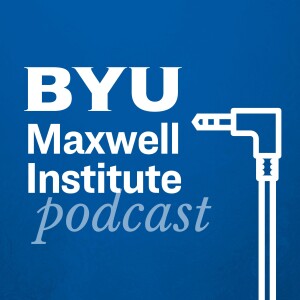
Maxwell Institute Podcast #161: How Can We Judge Personal History with Fairness and Charity? Featuring Jenny Pulsipher
 2023-05-16
2023-05-16
What does it mean to be an objective judge of history--of personal history, family history, or shared human history? Are charity and objectivity opposites--or are they partners? Today on the podcast I talk to Jenny Hale Pulsipher, a professor of history at BYU and a contributor to the Maxwell Institute’s recent book Every Needful Thing: Essays on the Life of the Mind and the Heart. As an historian, Jenny specializes in finding the nuance in complex historical figures--never excusing wrongdoing, but never losing sight of the gospel’s witness that we are all children of God.
In the October 2022 General Conference, Sister Anette Dennis, Counselor in the Relief Society General Presidency, asked, “How many wounded individuals do we have among us? How often do we judge others based on their outward appearance and actions, or lack of action, when, if we fully understood, we would instead react with compassion and a desire to help instead of adding to their burdens with our judgment?”
Jenny and I talked about how to balance objectivity and charity by adding, not subtracting, individual perspectives; and about how open-eyed interaction with our families and our histories can strengthen, not weaken, our bonds of love. We talked about the ways that the histories we tell might unknowingly burden the wounded. Jenny shared an amazing story about her own family history, and she talked about how her youthful testimony of the Book of Mormon grew through a challenge that forced her to revisit the questions she brought to it.
Thanks for joining us today, and I hope you enjoy this conversation with Jenny Pulsipher.
More Episodes
Create your
podcast in
minutes
- Full-featured podcast site
- Unlimited storage and bandwidth
- Comprehensive podcast stats
- Distribute to Apple Podcasts, Spotify, and more
- Make money with your podcast
It is Free
- Privacy Policy
- Cookie Policy
- Terms of Use
- Consent Preferences
- Copyright © 2015-2024 Podbean.com





